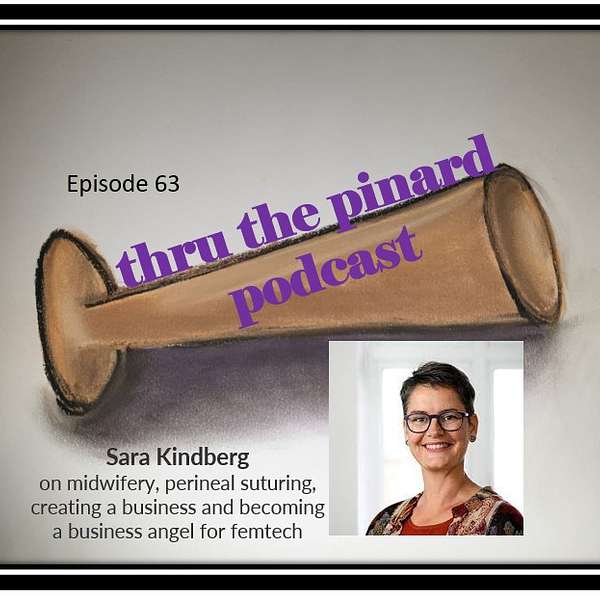
thru the pinard Podcast
a conversational podcast with @Academic_Liz with midwives & other birth professionals about their studies/ research & how it's changing our practice globally - email thruthepinard@gmail.com
thru the pinard Podcast
Ep 63 Sara Kindberg on midwifery, perineal suturing, creating a business and becoming a business angel for femtech
message me: what did you take away from this episode?
Ep 63 http://ibit.ly/Re5V Sara Kindberg on #midwifery , #perineal suturing , creating a business and becoming a #businessangel for femtech
@PhDMidwives #MidTwitter #research @GynZone
https://gynzone.com/
https://www.researchgate.net/profile/Sara-Kindberg
Ready to uncover the complex world of midwifery, politics, and research? Get ready, as we sit down with Sara, a Danish midwife turned researcher and business woman, for an enlightening chat on her incredible journey. She shares her experiences of juggling her PhD, work, and personal life, while providing insights into the multifaceted roles of a midwife - it is not just about helping women birth babies, it extends to governance, leadership, education, and even research.
Ever wondered how surgical skills and personal strengths factor into midwifery? From her international PhD defense to her future goals, Sarah shows us how technology is redefining healthcare. Not one to ignore the human aspect, Sarah emphasizes the importance of patient and consumer involvement in research, and how supporting each other can empower us all.
Finally, take a peek at the future of healthcare through Sarah's eyes. She shares her experiences with emerging technologies like virtual reality, and it's potential to revolutionize medical procedures. With Sarah's unique lens, dive into how female health investments can impact our society, and how it is being leveraged in her current research.
Do you know someone who should tell their story?
email me - thruthepodcast@gmail.com
The aim is for this to be a fortnightly podcast with extra episodes thrown in
This podcast can be found on various socials as @thruthepinardd and our website -https://thruthepinardpodcast.buzzsprout.com/ or ibit.ly/Re5V